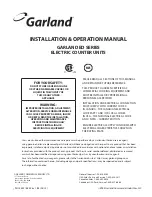
1
2
3
4
5
6
7
8
9 10 11 12
1. Typical DIP Switches Setting
To access switches open the back lid. Switches are located on the right side of
the lid, as observed from the bezel. The “up” state is defined as the switch
position closer to the top cover of the lid.
SW. #1
“Down” State
“Up” State
Default
SW 1.1
1-st Bill Enable controlled by host
1-st bill Disable
down
SW 1.2
2-nd Bill Enable controlled by host
2-nd Bill Disable
down
SW 1.3
3-rd Bill Enable controlled by host
3-rd Bill Disable
down
SW 1.4
4-th Bill Enable controlled by host
4-th Bill Disable
down
SW 1.5
5-th Bill Enable controlled by host
5-th Bill Disable
down
SW 1.6
6-th Bill Enable controlled by host
6-th Bill Disable
down
SW 1.7
7-th Bill Enable controlled by host
7-th Bill Disable
down
SW 1.8
8-th Bill Enable controlled by host
8-th Bill Disable
down
SW#2
“Down” State
“Up” State
Default
SW 2.1
Four Way
One Way
down
SW 2.2
High security disabled
High security enabled
down
SW 2.3
19200 bps data rate
9600 bps data rate
down
SW 2.4
Not used
Not used
down
2. Interface Connector Pinout
Mating Connector:
Socket 43025-1200 (Molex);
Contact 43030-0002 (Molex).
Terminal Circuit
1 Signal
Ground
2 RS232_DATA_TO_PC
3 GND
4 GND
5 +12V
6 +12V
7 RS232_DATA_FROM_PC
8 BUS
RESET
9 GND
10 GND
11 +12V
12 +12V
3. Power connections
+12 V lines must be connected together directly at the connector.
Power ground lines must be connected together directly at the connector,
thus forming a power ground star point; 12V power source must use this star
point.
Signal ground may not be connected to power ground star point; it should be
connected to the host signal ground instead.
Bus reset line, host Rx and Tx lines are all RS232 signal level lines.
4. Diagnostics
Count the number of flashes and compare with the diagnostic chart below:
## of
flashes
Malfunction
Boot-related flashes (green flashes on red background)
1
Memory write error – check memory stick for proper contact
2
Firmware set incomplete – please obtain the missing part and
install
3
A required card is missing – please install the card required;
normally reported when the main firmware component is
missing/corrupt
4
Update policy violation – please install the card required to
regain policy rights; most common reason – a ONE UPDATE
or NDEG card is missing
5
Generic error – a fatal boot error, please contact technical
support
Operation flashes (red flashes on dark background)
1
Box removed – please verify the drop box is secured in place
2
Boot invocation error – please verify that a required card is in
place
3
Box full – check the drop box and make sure it’s not full
4
Stacker plate stuck – verify that drop box is fully inserted and
stacker plate has room to move inside the drop box
6
Optical sensor failure – contact technical support
7
Magnetic sensor failure – contact technical support
11
Bill jam – please verify the bill pathway is clear
14
Firmware integrity problem – please verify that all firmware
components are installed

















